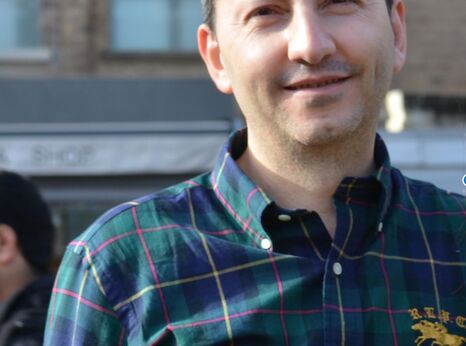Execution risk for Iranian-Swedish academic

On 24 November 2020, at the prosecutor’s office of Evin prison, Ahmadreza Djalali, his family and lawyer were told that the prosecution authorities had issued an order to the office for implementation of sentences to carry out Ahmadreza Djalali’s death sentence. Officials at the prosecutor’s office had not specified the execution date but said that the sentence would be carried out within a week, or no later than 1 December 2020. This news led to international calls to halt Ahmadreza Djalali’s execution. On 2 December 2020 after global interventions, according to information received by Amnesty International, his execution was stopped following orders from “higher up”. On 8 December 2020, his family learned his execution had been postponed for one week and in late December 2020, they learned that the office for implementation of sentences had again postponed Ahmadreza Djalali’s execution for one month.
Ahmadreza Djalali is a medical doctor and academic living in Sweden who was on a business trip to Iran when he was arrested on 26 April 2016. He was held in Evin prison for seven months in section 209, which is under the control of the ministry of intelligence. He was held for three months in solitary confinement, without access to a lawyer. Ahmadreza Djalali said that during this period he was subjected to torture and other ill-treatment, in order to force him to “confess” to being a spy. He has said that he was forced to read out “confessions” pre-written by his interrogators in front of a video camera. Ahmadreza Djalali denies the accusations against him and says they have been fabricated by the authorities. In a letter written from inside Evin prison in August 2017, Ahmadreza Djalali said he was held solely because of his refusal to use his academic ties in European institutions to spy for the Iranian authorities. On 17 December 2018 Iranian state-run TV aired Ahmadreza Djalali’s “confession” during a programme titled Axing the root, which used dramatic music, graphics and international news footage interspersed with Ahmadreza Djalali’s “confession”, along with a voiceover presenting him as a “spy”. By extracting and airing these forced “confessions”, Iranian authorities violated Ahmadreza Djalali’s right to the presumption of innocence as well as the right not to be forced into incriminating himself. Ahmadreza Djalali has since said the broadcast “confession” was filmed while he was being held in solitary confinement, without access to a lawyer.
In November 2017, the UN Working Group on Arbitrary Detention called on Iran to release Ahmadreza Djalali immediately and accord him an enforceable right to compensation and other reparations, as he had been detained without an arrest warrant, was only formally charged 10 months after his arrest, and had been “effectively prevented from exercising his right to challenge the lawfulness of his detention”. They also found that his right to a fair trial had been violated so gravely “as to give Mr Djalali’s deprivation of liberty an arbitrary character”.
Prolonged solitary confinement – that is solitary confinement imposed for periods beyond 15 days – violates the absolute prohibition on torture and other ill-treatment. Detention without access to the outside world facilitates torture or other ill-treatment. Per the UN Standard Minimum Rules for the Treatment of Prisoners, “prisoners shall be allowed under necessary supervision to communicate with their family and reputable friends at regular intervals, both by correspondence and by receiving visits.” Additionally, the conditions of imprisonment for individuals under sentence of death must not violate the right to be treated with respect for the inherent dignity of the human person or the absolute prohibition against torture or other cruel, inhuman or degrading treatment or punishment. Individuals on death row must not be denied contact with others, including their families.
Amnesty International opposes the death penalty in all cases without exception regardless of the nature or circumstances of the crime; guilt, innocence or other characteristics of the individual; or the method used by the state to carry out the execution. The death penalty violates the right to life as proclaimed in the Universal Declaration of Human Rights.